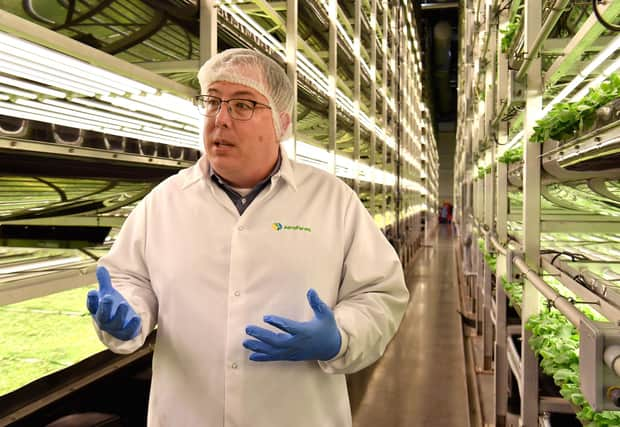Why vegan meat substitutes are not the way to fight climate change – Stephen Jardine


Fewer than two per cent of UK adults follow a vegan diet, according to the latest figures from market research firm Minitel. But walk the High Street and you’d be forgiven for thinking the actual number is at least ten times that.
Veganism has been the hot trend in the food sector for the past two years with sandwich shops, burger chains and supermarkets vying to position themselves for the expected tidal wave of consumers. Except they haven’t materialised.
Advertisement
Hide AdAdvertisement
Hide AdBurger King recently ended a trial of a vegan restaurant in London and has no plans to repeat the exercise. Furthermore, an American vegan fast-food chain recently closed it’s four sites in the UK and Honest Burgers has abandoned it’s only meat-free outlet after customers continued to demand beef or chicken.
How do you know someone is vegan? Don’t worry, they’ll tell you within a couple of minutes. It’s a tired old joke but there does seem to be a discrepancy between how keen people are to declare their meat-free status on social media and how willing they are to put that into practise.
If you’ve ever tried a vegan burger you may not be surprised the sector is slowing down.
Often a disappointment and rarely a delight, the faux meat industry behind vegan fast food is also stalling. Beyond Meat, the company behind many plant-based products, burned $580 million in capital last year to record a loss of $182 million.
Taste may be one factor but another issue is undoubtedly the cost-of-living crisis. Vegan meat substitutes tend to be heavily processed with long lists of ingredients required to achieve the necessary mouth feel and flavour. That makes them more expensive and, right now, that’s a problem.
Of course we should all be eating less meat and more vegetables, the very future of the planet depends upon that. But that is going to be achieved by casual vegetarianism rather than the rigorous demands of veganism.
Food brands and supermarket retailers would have realised that if they’d done real research and not rushed headlong into changing their approach based on Instagram hashtags or what the contestants from Love Island say they like to eat.
At the moment the market is distorted. Teenagers are much more likely to be the ones who declare themselves vegetarian so parents take them to restaurants and shop in supermarkets where their tastes will be catered for.
Advertisement
Hide AdAdvertisement
Hide AdAs a result, we have vegan menus very few people order and vegan ready meals that often end up on the reduced shelves.
The answer is to get away from a world where food scientists try to create a meat-free burger, sausage or meal that tastes like one made with meat using vast lists of additives and ingredients.
Instead we need to concentrate of making vegetables the centrepiece of every meal with meat as an occasional treat.
Scotland is now leading the way in vertical farming, a technique developed by Nasa scientists to allow crops to be grown indoors in stacked containers. It is efficient and sustainable, and the potential is vast.
Instead of fake meat, real veg grown here is a much more appetising prospect.
Comments
Want to join the conversation? Please or to comment on this article.
